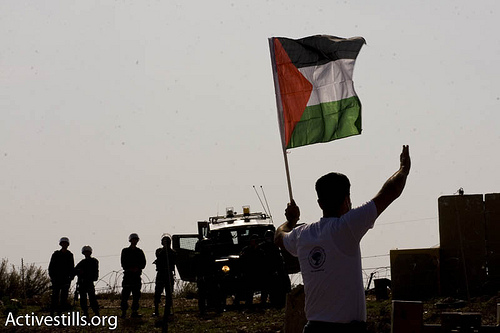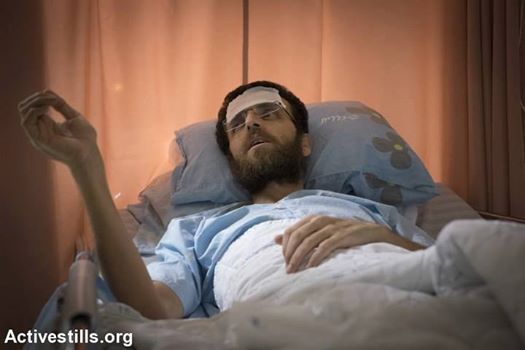Tag: International law
-
11 years of peaceful resistance in Bil’in
February 18th, 2016 | International Solidarity Movement, Ramallah team | Bil’in, occupied Palestine On Friday, February 19th, residents of the village of Bil’in will march to celebrate the 11th aniversary of the beginning of the weekly protest against occupation. The small village of inhabitants has for over a decade united Palestinians and internationals to support…
-
Call for Action: Save Mohammed al-Qiq
18th February 2016 | International Solidarity Movement| occupied Palestine 33-year-old journalist, Mohammed al-Qiq, is on hunger strike since November 25 2015, in protest against his imprisonment without charges or trial in Administrative Detention by Israel. Al-Qiq’s health has deteriorated to the point of facing imminent death. His wife Journalist Fayha Shalash is calling on journalists…
-
Children living in closed military zone enjoy day of fun under the shadow of the occupation
13th February 2016 | International Solidarity Movement, al-Khalil team | Hebron, occupied Palestine On February 13th 2016 Youth Against Settlements in occupied al-Khalil (Hebron) organised a children’s activity in front of Shuhada Street checkpoint. Around 50 children from the neighbourhoods located on the H2 (entirely Israeli military-controlled) side of the checkpoint – Tel Rumeida and…



